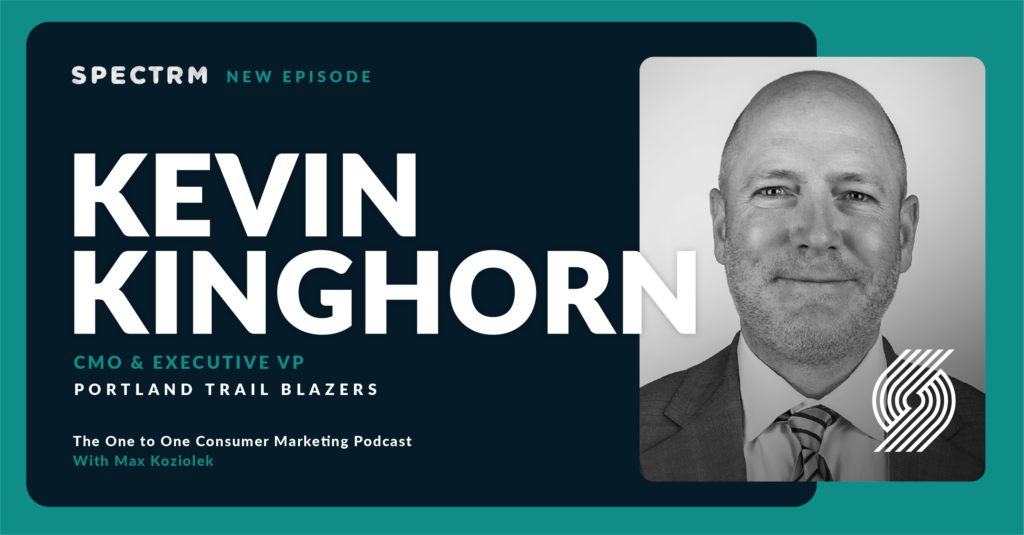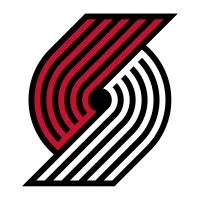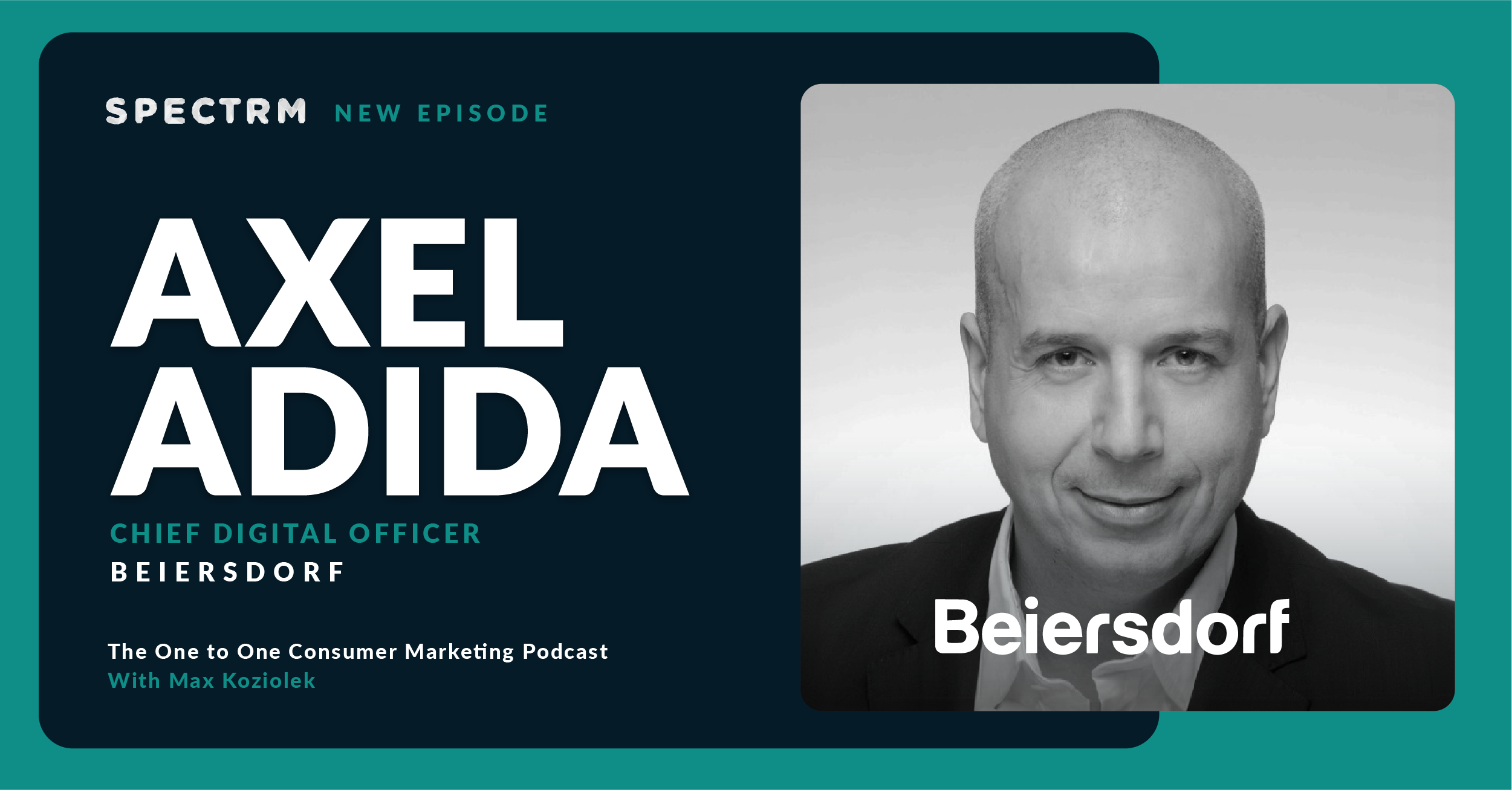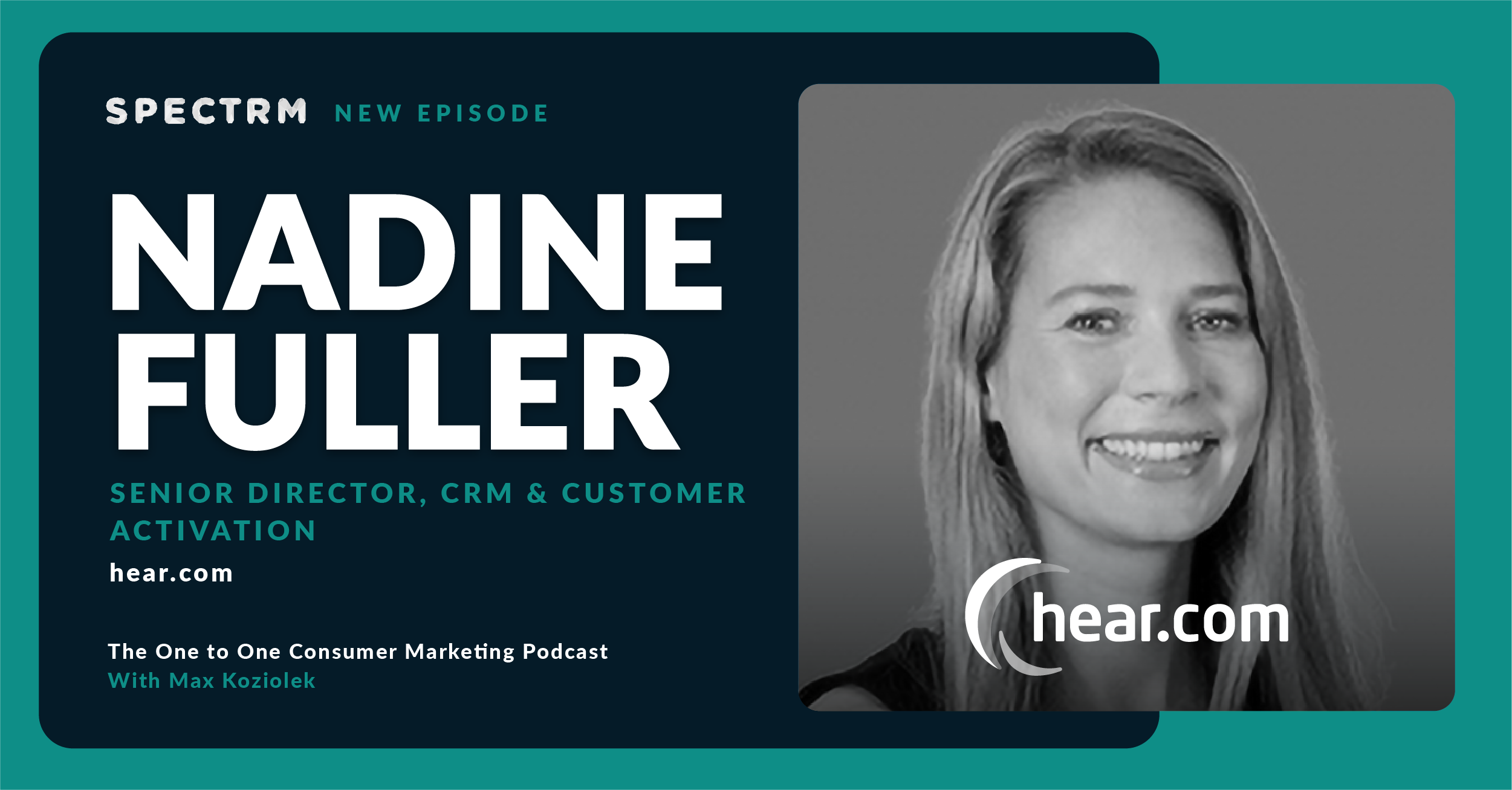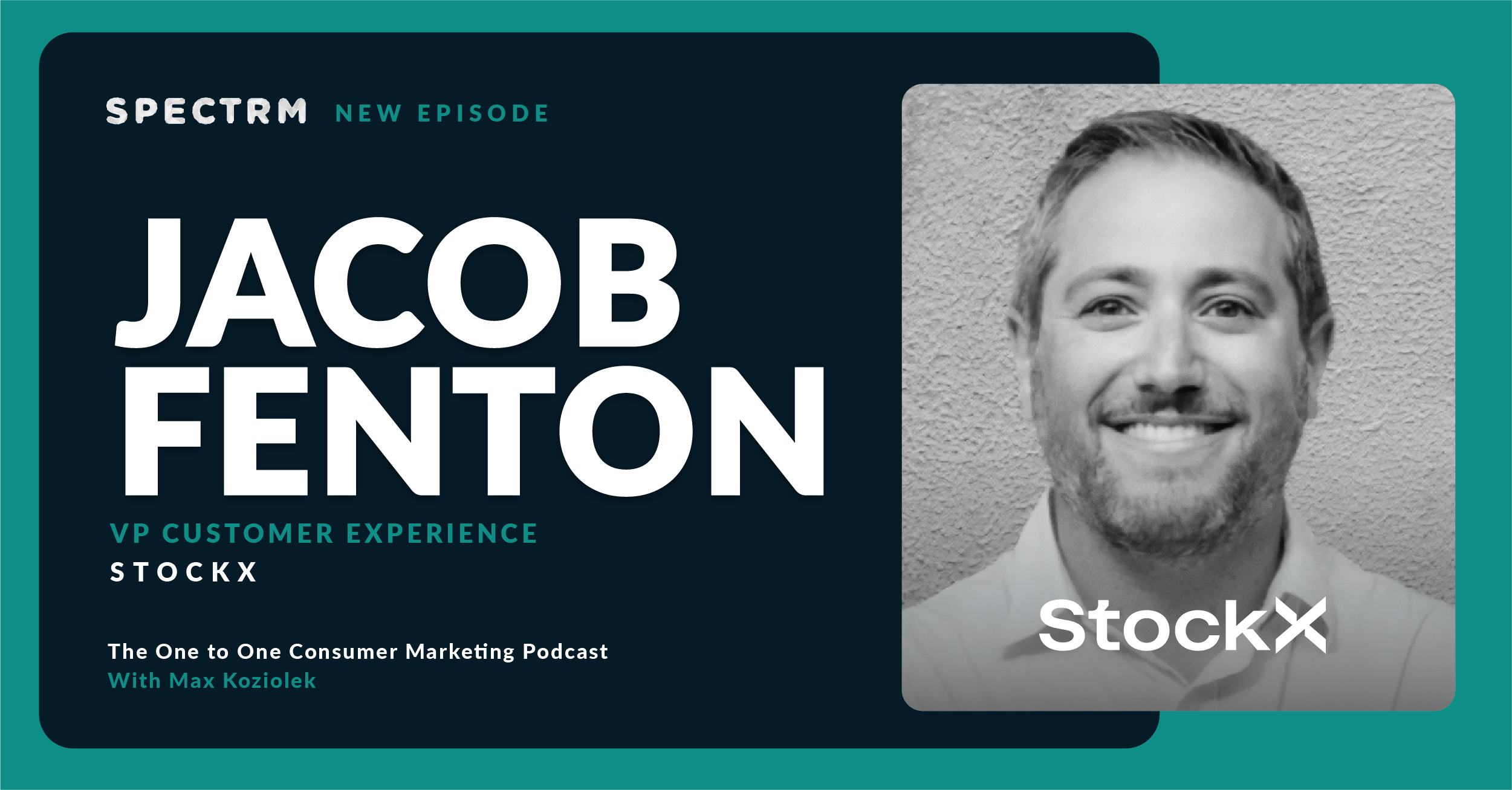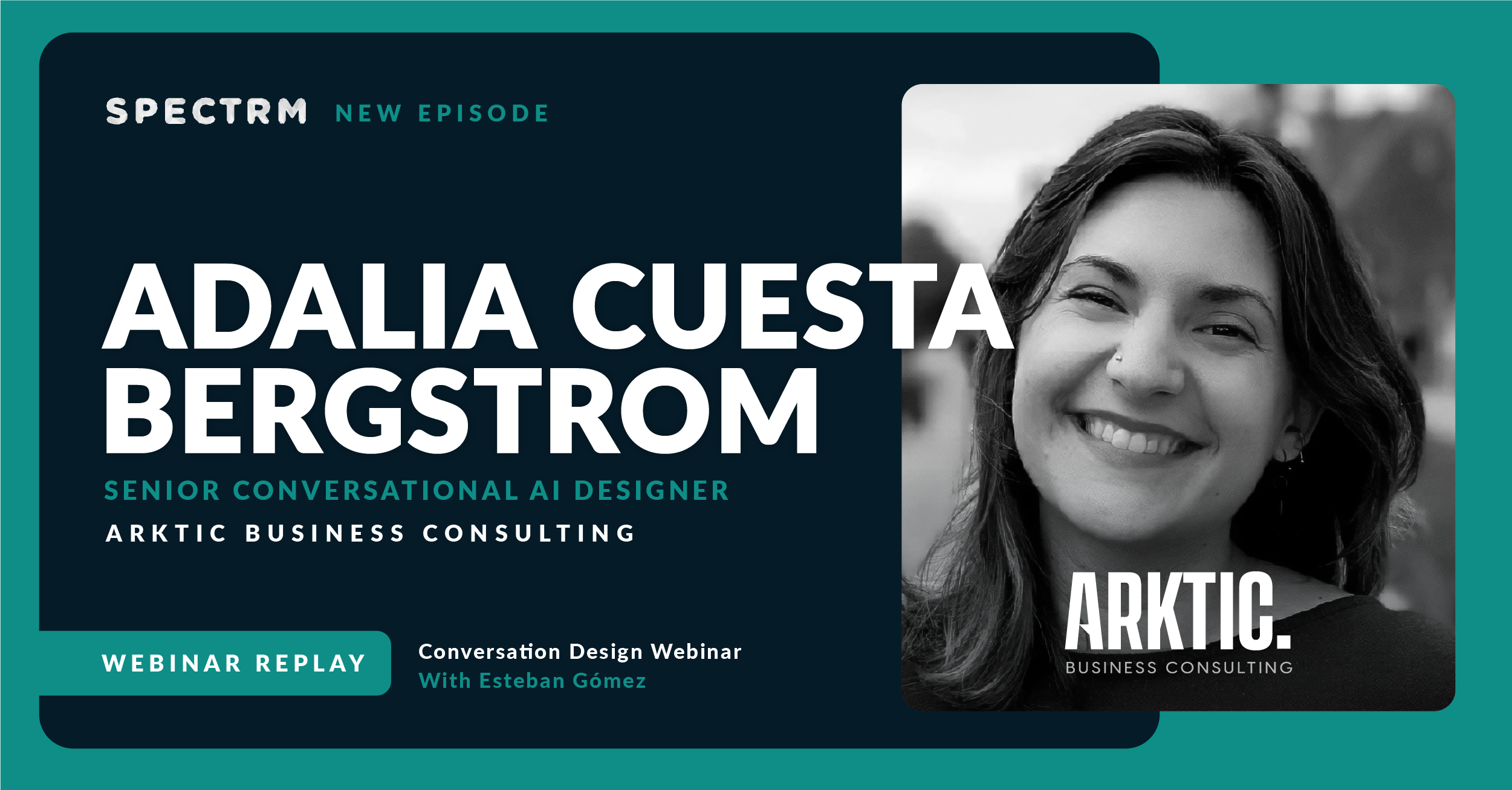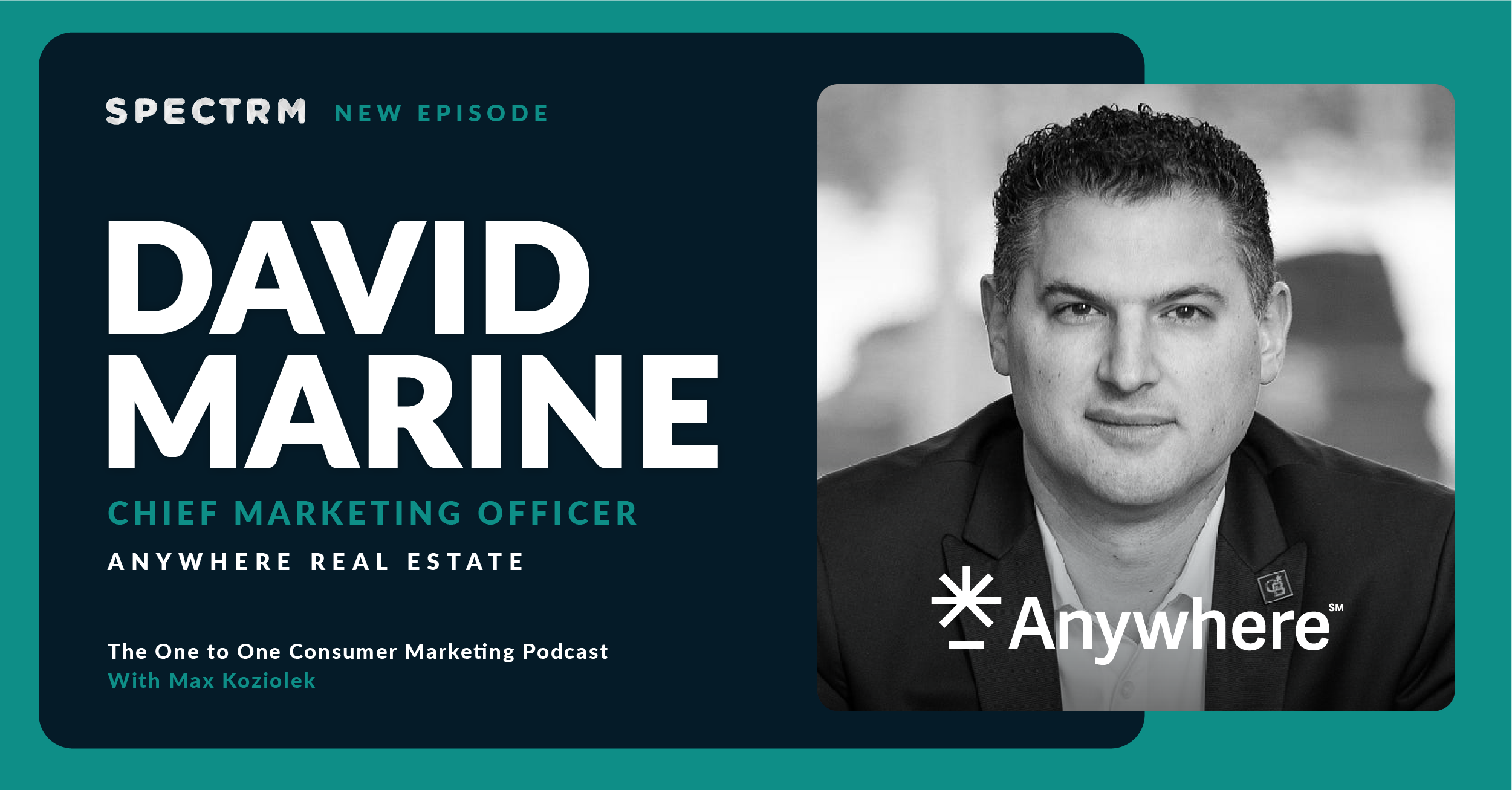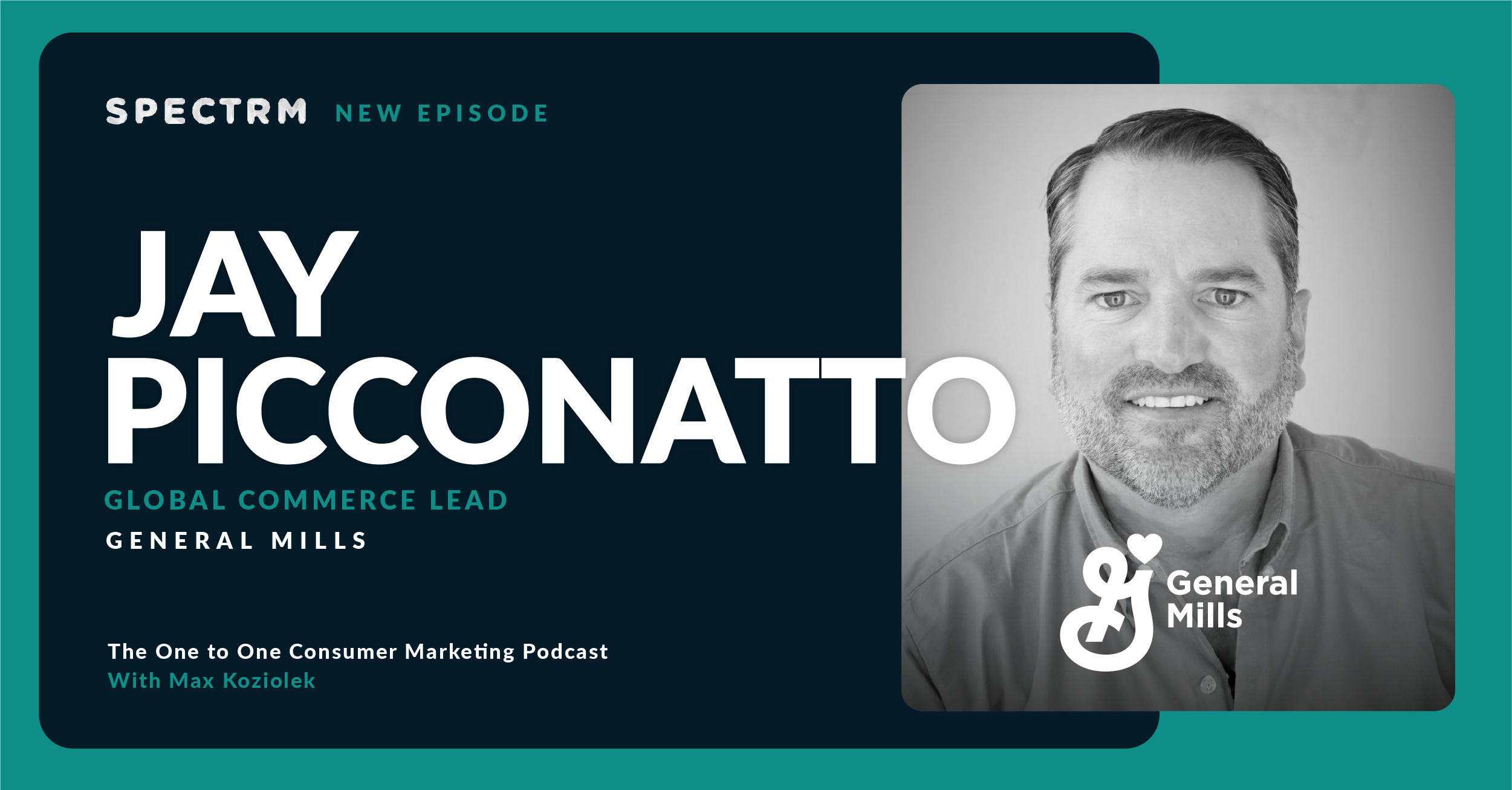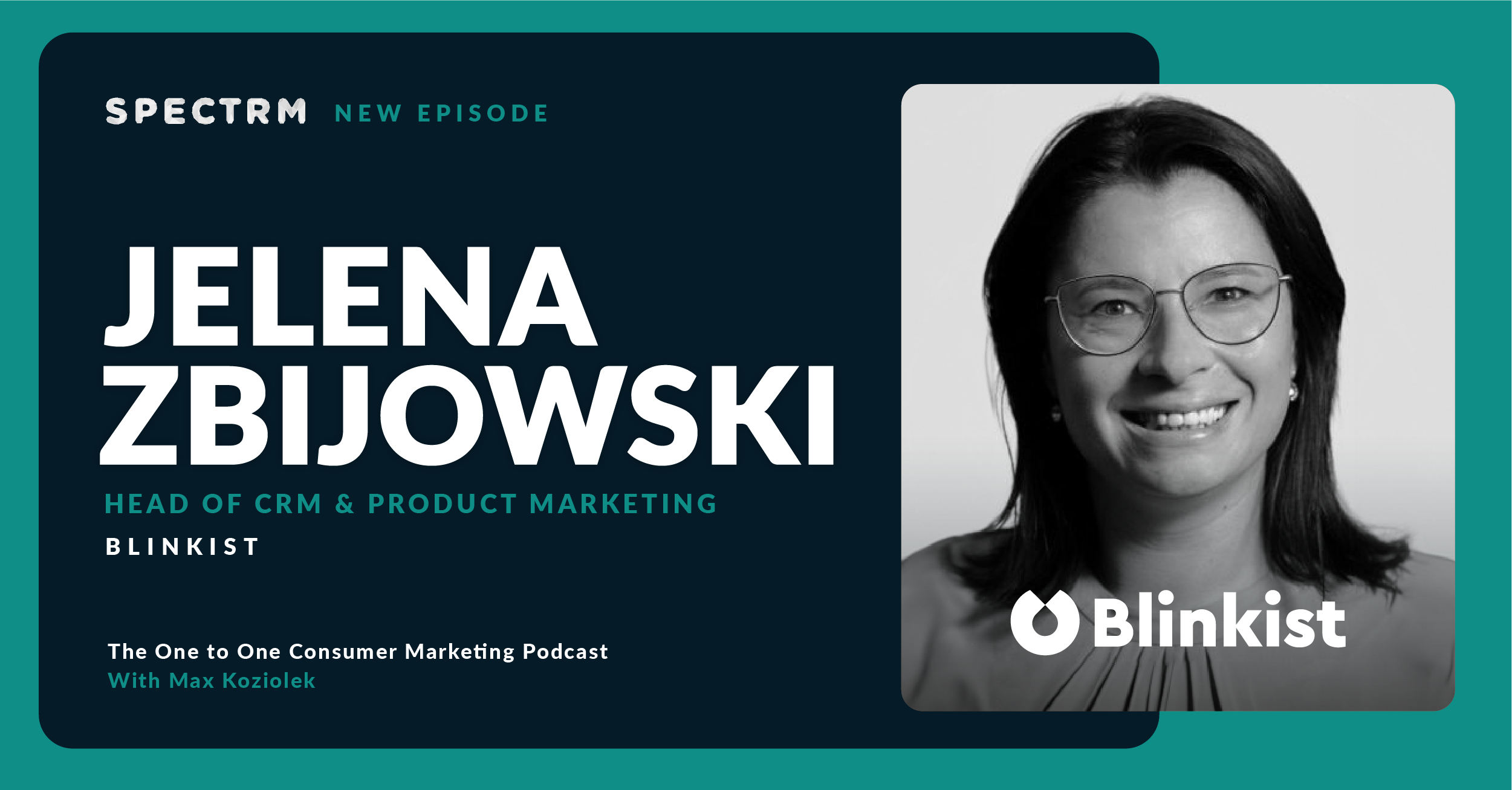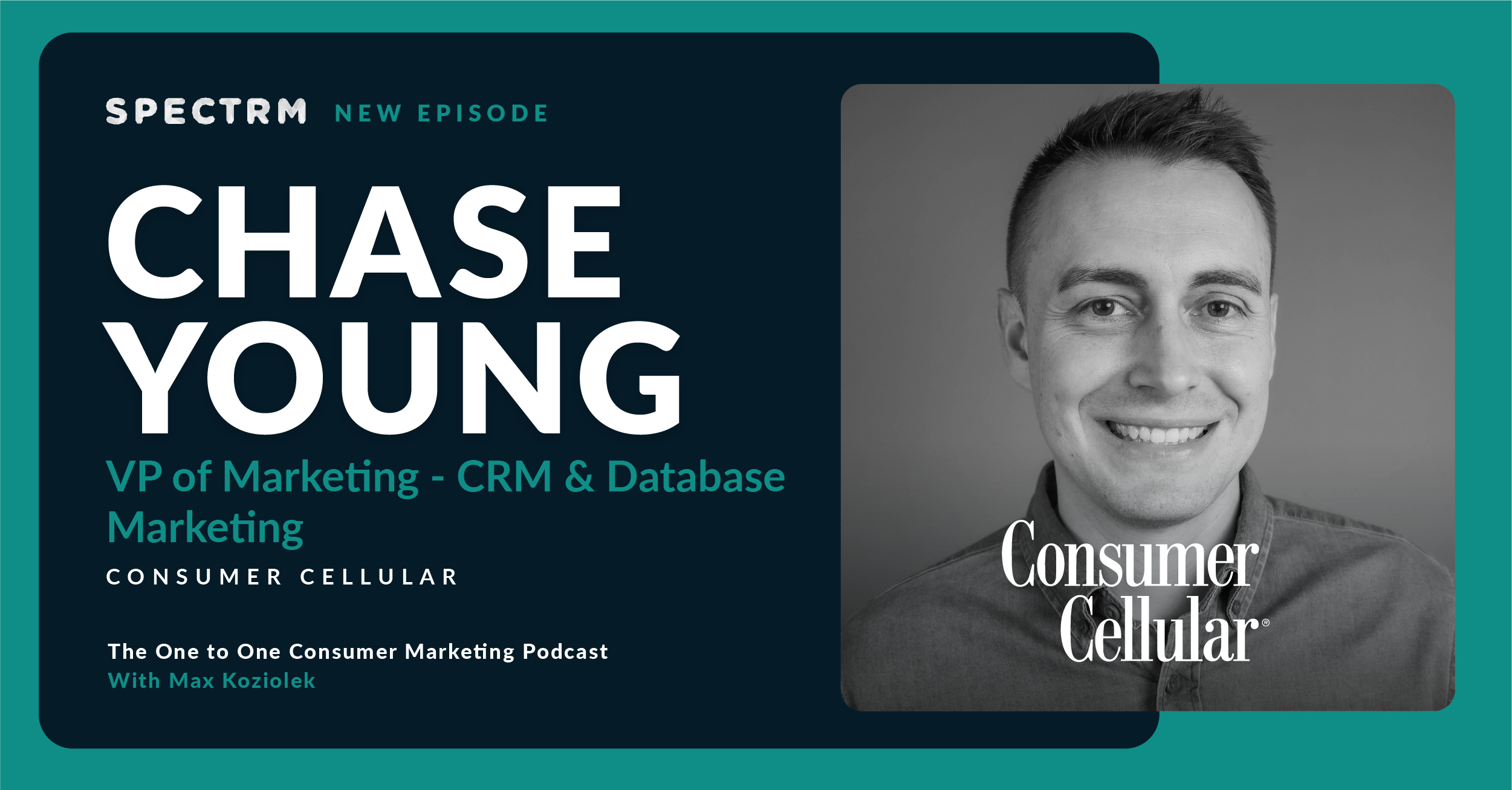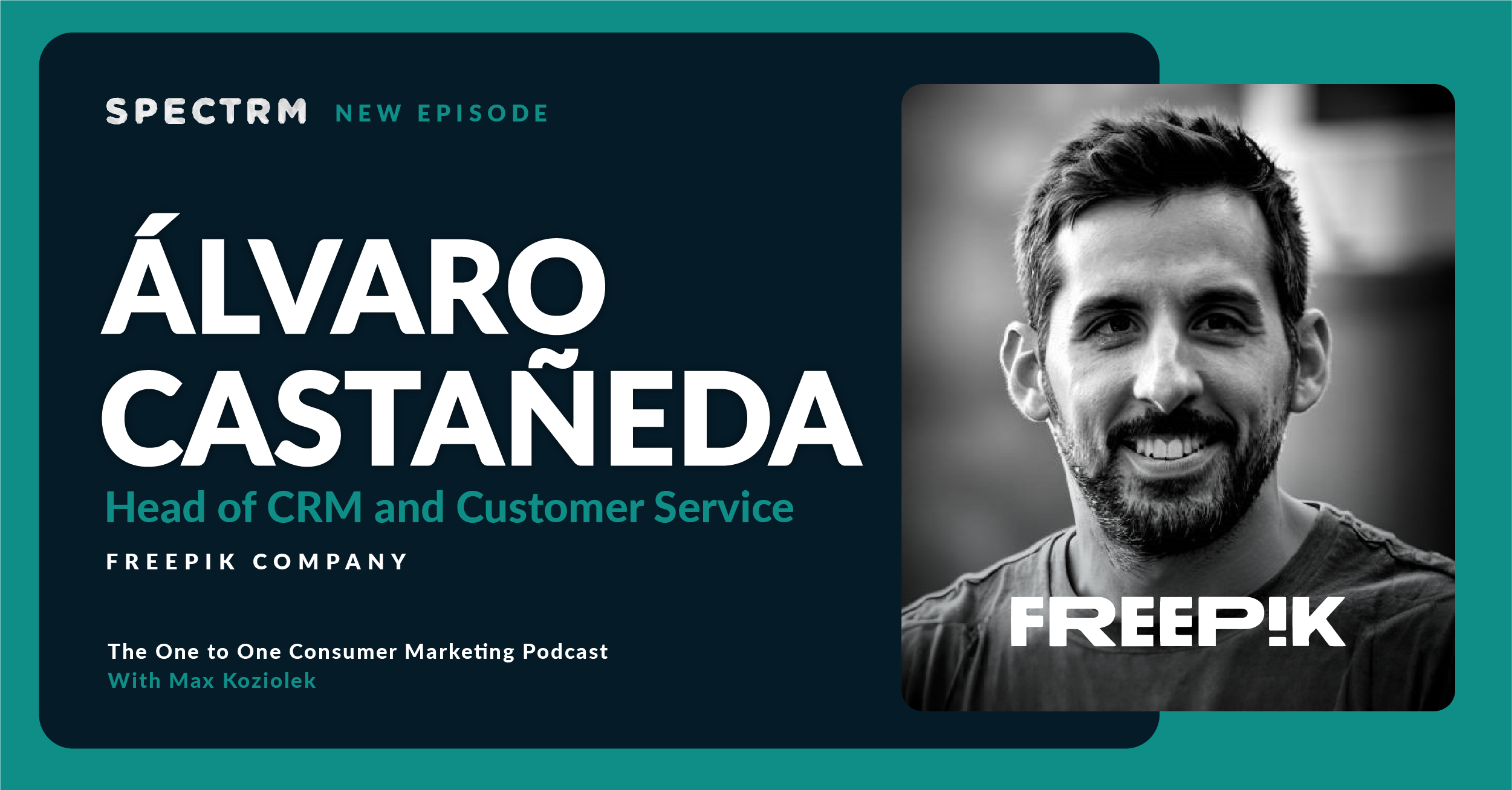Summary
Max speaks with Kevin Kinghorn, Chief Marketing Officer & Executive Vice President for the Portland Trail Blazers. They discuss how to build a marketing strategy that drives fandom and emotional connection, the importance of authenticity and storytelling, and why focusing on fewer audience segments allows for more consistent brand-building. They also talk about the importance of stadium experiences beyond the game and how to leverage data to identify areas of underperformance.
Topics discussed
- Understanding the drivers of fandom and the “jobs to be done” so you can build your marketing strategy.
- Why having fewer audience segments results in more consistent brand-building across channels.
- Why marketers should focus on the “double funnel” of both acquisition and retention.
- Why the age of season tickets and just watching a game are dead, and why sports brands need to focus on a more holistic stadium experience.
- How to create consistency across channels through aligned storytelling.
- How regional sports networks are changing how sports brands reach their fans.
- Why data insights can help you identify where you’re underperforming in the market.
We also need to be thinking about different ways people consume that product. So when they're attending a game, how are they experiencing that? Because it can't just be the game, right? So to get back to your original question, yes, we're looking at those evolving behaviors and how are we shaping not only what we're doing from a customer experience perspective, what we're doing from a marketing perspective, but really how are we shaping the building that they're in and what amenities are we providing and what sort of emotional connections are we trying to drive?
Guest biography
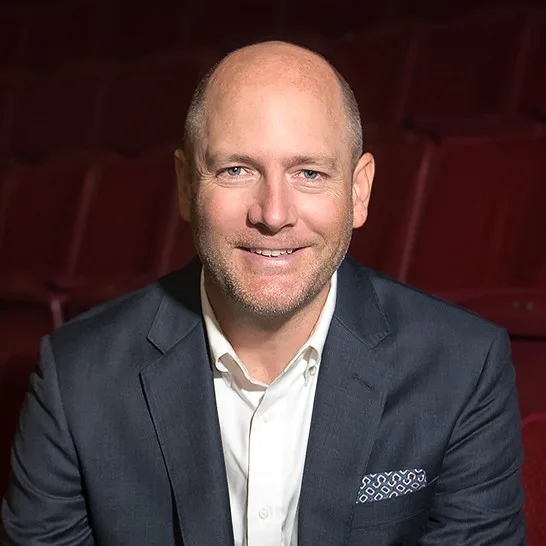
- Chief Marketing Officer & Executive Vice President leading marketing and Innovation with the Portland Trail Blazers, Rose Quarter, and Blazer5 Gaming. Overseeing brand marketing, customer insights, fan development, content, including broadcast and game entertainment, business analytics, innovation, and technology.
Company overview
Portland Trail Brazers bring people together to create extraordinary moments and lasting memories through the power of sports and entertainment. Two teams that work as one. Rip City Management executes our events at the Rose Quarter, from games to concerts and everything in between. Trail Blazers Inc. connects with fans, from ticket holders to partners and clients. We unite for top company results. We are the team behind the team.
Industry: entertainment provider | www.rosequarterbrand.com
Subscribe to the podcast newsletter
Transcript
00:00
Kevin Kinghorn
We also need to be thinking about different ways people consume that product. So when they’re attending a game, how are they experiencing that? Because it can’t just be the game. Right? So to get back to your original question, yes, we’re looking at those evolving behaviors and how are we shaping not only what we’re doing from a customer experience perspective, what we’re doing from a marketing perspective, but really, how are we shaping the building that they’re in? And what amenities are we providing? What sort of emotional connections are we trying to.
00:34
Max Koziolek
Hey everyone, and thanks for listening to the one to one consumer marketing podcast. Today I’m speaking with Kevin Kinghorn, EVP and CMO at one of the NBA’s iconic brands, Portland Trailblazers. Thanks for chatting with me today.
00:47
Kevin Kinghorn
Yeah, thanks. Nice to be here. I appreciate you inviting me.
00:50
Max Koziolek
Great. Before we get started, why don’t you tell us a little bit more about your background and journey into sports marketing.
00:57
Kevin Kinghorn
Sure. So just for starters, I’m relatively new to the NBA and the Portland Trail Blazers. I joined just prior to the start of last season. So just coming up on a year and a half. So I’m new to the NBA but have a long history in sports. So prior to that I’m actually from Canada. I worked for a sports agency right before I joined the Trail Blazers and then before that with Canuck Sports and entertainment.
01:21
Max Koziolek
Nice. Was sports always your passion or why do you thought to go for a sports marketing agency?
01:27
Kevin Kinghorn
Yeah, sports always was a passion, was never a career path for me. I actually coming into school had a career in journalism. So my degree was journalism and philosophy and I worked for a paper for a very short amount of time when I got into school and let me stay right off the top. I have tremendous respect for journalists. Not an easy job and it wasn’t for me. But I will say what it really taught me was obviously how to communicate, how to ask questions. But I had an old editor who used to say, if you don’t understand something, you can’t explain it. So there was really sort of that trained curiosity. I think that I learned from my journalism career, my short stint, and I got a job sports writing.
02:08
Kevin Kinghorn
Oddly enough, still sort of in journalism, but completely different from what I was doing in news. And I just sort of applied those same skills that I’d learned in journalism and in journalism school to the sports industry. So just as web became a thing, very interested in how that worked and hey, can I post my own stories? Social became a thing. How can we leverage this for the company. Then data became more important for sports and just sort of continued to grow. I will say was very lucky. I had some great mentors along the way. I’ll give a shout out to my brother who actually got me started in sports, used to work there. I owe my career to him, but learned a lot that way and then just sort of evolved and grew as the industry.
02:50
Max Koziolek
Cool. Very cool. And now in the NBA, which is really cool, but let’s dive into that, right? So most marketing teams outside of sports have personas and ideal customer journeys. And if everything comes perfectly together, they have turned a customer into a fan. Right? So someone that is telling their friends about this and so on, you have a million raving fans. So what is different about marketing or making marketing for them than for a customer, than a normal customer, ecommerce customer or something like that?
03:23
Kevin Kinghorn
First of all, yeah, it’s great to have a million fans, but if we’re looking at them as just fans, I think we’re in trouble. You have all types of different fans that are consuming the product for a different reason. And yeah, I would love to have just people who are diehard Trail Blazers fans, and they’re in it through thick and thin, but that’s really not the case. So trying to really diversify your audience, understand what those drivers are those levers of fandom and making sure that we’re pulling those across our broad base. And I think the reason that you do that is sports is a cycle. And if you think about it as sort of a line chart, you’ve got your ups and downs. Like that’s inevitable. We’re not in an industry where you’re selling packaged goods or something static.
04:05
Kevin Kinghorn
The product does change and it changes dramatically. So I see our job from a marketing perspective and brand building perspective is how do we shave off those lows so that when team performance isn’t there supporting us, we’re not dipping down in attendance, fan base size. And then when we are really successful, how are we maximizing that opportunity? And I think that the way that we do that is understanding the different fan groups and being able to serve them.
04:29
Max Koziolek
When I asked that question, I said, marketers have audiences, ideal customer journeys and so on. So it sounds like you have the same as almost every market. What kind of audiences do you look at on a day to day basis?
04:43
Kevin Kinghorn
Okay, from a detailed audience perspective, like, what are the different categories of breakdowns? Let me start off with everybody is looking at, I have my core fans, the people who live and die. And it’s so important to them to be part of the Trail Blazers family. There’s also a secondary audience which would be like your sports fans, people who love sports in general. And then you’ve got casual fans and that breaks out. And an example of that I like to use is a mom or a dad who has a couple of young kids. They take them to a trailblazers game. Kids are interested in youth basketball for me to market to that family. Hey, this is so exciting. This is a great play. You should watch that isn’t really resonating. It’s more about that experience. So there’s the jobs to be done theory of marketing.
05:32
Kevin Kinghorn
You’re well aware of that. So that’s how I like to look at it. Like what need are we serving? And that gets us away from thinking so myopically just about the product and how we’re marketing the product. That is important. Absolutely. But what is that need that we’re fulfilling with those different fan groups? That’s what I think is more important for us.
05:51
Max Koziolek
And how many different audiences or fan groups are you roughly looking? Is it in the 10th, is it in the hundreds? Because I assume you just described the mom versus the I was fan. So these are completely different requirements, completely different content, completely approach. So that sounds like a lot of different work.
06:11
Kevin Kinghorn
Yeah, no, I’m not looking at hundreds of different fan profiles. I think that can get you away from what I think is important. Now I’m going to sound like I’m contradicting myself. The fewer the groups I think the better. And when I say that, I’m not talking about 72 different life stages. That’s not valuable for us because I think it is also important at the same time to have some consistency in the message that you’re trying to connect with fans across different channels. So earlier in my career I used to be very digitally focused. That’s where I came from the digital world. And I thought, well, we’ll just use a DSP, we’ll use all of the native tools, we’ll just put out a bunch of content, we’ll see what resonates, we’ll do more of that. We’ll look like audience.
06:54
Kevin Kinghorn
That’s how we’re going to find our fan base. And I’ve completely switched. I really think it’s more important than ever to be brand building and thinking about that brand promise and how we’re doing that across different channels. So what is the consistency? How are we representing the place and how are we representing the values of the fan through sport, because that’s what keeps you from dipping super deep in that value. And that’s what allows us to really build peak on peak and be successful that way. So from a fan perspective, I think if you’re looking at more than seven, you’re probably too fractured and you’re talking very uniquely to one fan base. And what you’re missing is the consistency and what’s resonating across your entire fan base. Does that make sense?
07:34
Max Koziolek
It does. That’s a very interesting point. I wanted to dig a little deeper onto that is you said you changed your mind on this because you came from a digital point of view where you have basically this optimization cycle, right? So I measure everything and what works I optimize for. But is that right that you’re saying if you do that, then you have very highs but also very lows? Is that why you now thinking differently about this? Or is it also something else?
08:02
Kevin Kinghorn
Something else. So when you think about what makes sport different than other businesses is there’s that emotional connection. People care tremendously about their city, their community, and especially their sports teams. For us, the goal is, I want to make being a Portland Trail Blazers fan synonymous with being from Portland and Oregon. That’s ultimately the goal. People have an emotional connection. I think what we have as an advantage over most different industries is that’s inherently why people come and consume sports and are interested in the product and want to watch on tv and buy and wear the merch and everything else. If we’re not leaning into that, we’re missing our greatest strength. So to me, it’s always like, how are we generating that emotion in someone? And when you’re thinking about like, oh, we’ll just segment and think about attributes and feed that.
08:52
Kevin Kinghorn
I think it’s missing what is core to what we’re trying to do, which is like, how are we telling our stories? I think of ourselves in many regards as a media company, and how are we pushing out content that resonates? And I want to have consistency across that because we are talking to a broad base offense. So rather than thinking about being super fractured and pinpointed, which we do to some degree, I also want to really focus on what are the core fundamentals of the brand and what we’re trying to communicate. So authenticity, being unique, being approachable, these are the things that we want to have across all of our touch points.
09:29
Max Koziolek
Being unique, being approachable, that sounds a lot like the brand guiding principles you developed over the or have since the last one and a half years since you were there. But how else are you approaching brand building for such an iconic brand already? Right.
09:46
Kevin Kinghorn
So one of the things that I think to sort of build on that last answer that can be a bit of a trap, is thinking only about acquisition. So we talk about the marketing funnel and how are we driving people through to consume the product. What we really want to do is have that bow tie approach. So the double funnel. So thinking about how are we building interest in the team and how are we doing that across different ven segments, as people enter that funnel, become part of our ecosystem, we don’t want to leave it there because, again, because it’s emotional, because it’s important, because we’re serving that need, we want to try and understand that better. And then how are we delivering on that promise?
10:24
Kevin Kinghorn
And how are we taking people who sample the product or whose parents or friends are talking about that product and turning them into advocates? In order to do that, we need to understand what’s brought them in so that we can deliver on driving them into ultimately advocacy. And the only way to do that is to try and figure out what brought you in. What do you care about, what’s that jobs to be done and then really focusing just as much on how we’re delivering on that.
10:51
Max Koziolek
Very interesting, because in software as a service, I think in the SaaS industry, I think the bow tie funnel is also, I would say, since one and a half years, two years, I think a company created this framework and they’re very successful with that. And companies applying this are very successful with that because they’re also saying the second class or the second funnel basically is so important because here you optimize for recurring revenue. So companies seeing recurring impact with a product means recurring revenue and so on. So for you, that conversion in the middle of the two funnels, is that going to a game or is that visiting multiple games or what’s in the middle for you?
11:32
Kevin Kinghorn
Yeah, I’m really glad you asked that question. So I think looking at dashboards and thinking about if you were to ask me what are you measured against? If you would have asked me a couple of years ago in my career, I would have said, well, single game ticket sales. So the way sports is generally structured for a membership or a large product that would go through sales, you touch a salesperson for anything that is a straight digital purchase that tends to be more over on the marketing side. So I would look at how many single game tickets are we selling? What is my return on ad spend on all of my digital marketing, I’d look at things like brand health, how many people actually attended the game.
12:07
Kevin Kinghorn
Those are all really great metrics, like what is their retail number, how am I returning on my membership marketing efforts? Great. But that’s all, as you know, a little bit of a moment in time and a lagging indicator. I think what’s really important about sports is being able to get off of, okay, what’s happening in day to day, and then to look a little bit further in the future and think about how are we building fans, how are we understanding what’s bringing them into our ecosystem and how are we feeding that’s upstream. If we do a really good job of taking care of that, everything else will follow. And so your question about is it someone who buys a ticket?
12:42
Kevin Kinghorn
Yes, it’s someone who buys a ticket, but I also just want to have someone who enters our ecosystem and who comes in and says, I’m a fan of your team, in your organization, and I want to be part of that community. That to me, is in many ways the most important conversion. And then how are we engaging? It’s not just about spending a dollar, because I think having an advocate out there, especially in a digital age where they’re communicating with all types of people, they’re influencing so much. They’re like that old analogy of drop a rock in a pond and all of the ripples are influencing everyone around them. So if I do a really good job of building fans and building passion and igniting that emotion, everything else is going to be fine.
13:20
Max Koziolek
Is there a moment here which you particular measure, that is saying, now this person becomes part of the community? Is that a login somewhere? Is that a like or a follow or what is that?
13:34
Kevin Kinghorn
So, yeah, anytime that we’re getting first, last email, mobile, whatever that is, that to me is that first moment of contact. Obviously, there’s everything that’s happening before that, and I’m not necessarily able to measure that in the same way. But when someone raises their hand and says, I want to be part of that fan community, that’s it. And then on the other side, what I’m really trying to do, and I think, again, is our unique advantage is people want to share information with us. This is different than a lot of different industries. So how am I leveraging that opportunity to understand more about that fan? And again, then the next step is how am I using that to drive that fandom and eventually turn them into advocates?
14:16
Kevin Kinghorn
But let’s be clear, I absolutely want someone to come buy a ticket I want them to buy merch for sure. I’m not ignoring that. So let’s be real. I do think the way to do that is to build better fans.
14:27
Max Koziolek
Yes. They buy more. Right. So they come to more games, they buy more jerseys, whatever. Right. So I think there’s a foundation for that. This is one conversion, but you want to have more conversions and more ticket sales down the road.
14:42
Kevin Kinghorn
Yeah, I was just going to add, so when you’re looking at that, if I’m seeing from my insights team that we’re aging out and are really not connecting with that young fan base, which I think we can talk about RSNs in a minute, and broadcast, which is a fascinating discussion right now and very topical, then we’re doing ourselves a disservice. We need to be looking at the different types of groups that are coming in and aging out and being very aware about how we’re engaging different groups to make sure that from a lifetime value perspective, we’re looking long term to try and grow ultimately where we’re going to be. If you just, again, get focused on that moment in time and we’re looking only at one segment, who’s spending money now or engaging with our brand now, we’re in trouble.
15:24
Max Koziolek
I can understand that. Yeah, that makes sense. Let’s talk about aging customers, aging fans. We had very recently a podcast with CEO from Rite Aid, which has definitely, that’s also top of mind for her to figure out, okay, what’s an aging customer look like? What does it mean for us, how we appeal that? How is that for you? I mean, on the one hand, I make an assumption and that I’m saying for younger demographics, sports has an easy in because a lot of the younger folks are doing more sports than the older folks. But how is it for you? How do you think about that?
15:57
Kevin Kinghorn
I think that behaviors are changing, and I’m sure that this has been discussed many times, the impact of the pandemic and how that accelerated consumer behaviors. I don’t think it’s any different for us. Thinking about in a specific example, broadcast is probably a good place to start. The way that people consume media is rapidly changing. We all know this. I think there’s a whole segment of our population that isn’t consuming a full game the way that they did in the past. So we’re seeing bits and pieces and the days of I’m going to subscribe to cable or I have a game over the air, and then that’s doing our job for us and onboarding fans for us isn’t realistic anymore. So when I were looking at what are those behaviors of the sort of past fan, I don’t think they apply in the future.
16:46
Kevin Kinghorn
And I will say, like traditional memberships. So someone buying a full seasons of tickets and it being just strictly, I come to the game, I get to go sit in a seat, watch the team and leave. That’s dead. Nobody’s thinking that way anymore. The way that I think we used to do business is very similar to you pay the money, we give you the tickets, and that’s that. What we’re trying to look at more from, and I’ll use analogy, a golf club. Nobody goes and buys a golf membership thinking, oh, I’m just going to get a bunch of free passes to play golf. There’s so much more to that experience and different reasons why they’re signing up for that membership. We need to be thinking that way. We also need to be thinking about different ways people consume that product.
17:29
Kevin Kinghorn
So when they’re attending a game, how are they experiencing that? Because it can’t just be the game. Right. So to get back to your original question, yes, we’re looking at those evolving behaviors and how are we shaping not only what we’re doing from a customer experience perspective, what we’re doing from a marketing perspective, but really, how are we shaping the building that they’re in and what amenities are we providing? What sort of emotional connections are we trying to drive?
17:54
Max Koziolek
I’m realizing, I’ve never been to a golf club, but I assume that it’s nice there. Have a nice launch, they have nice food, they have nice drinks, and the connection and the network. Right. So the community probably think that matters than more for people that are used to the highlight snippets on reels or TikTok.
18:15
Kevin Kinghorn
Right? Yeah, exactly. Very well said.
18:17
Max Koziolek
Okay, that’s good. You said earlier you come from the digital side. If you look about engaging fans, of course, you have the offline component on the game day. Of course. Right. But how you think about this digital what kind of channels are working for you and what channels don’t work anymore?
18:34
Kevin Kinghorn
Yes, it sort of depends. Are we talking about what is returning on my ad spend from a straight ticket conversion standpoint, or are we talking about how we’re engaging the community and getting people excited about the brand? Because again, I would give the same answer, that what’s important is consistency across those different channels and how you use them and what are we trying to accomplish? So again, if I’m trying to make the fans the center of my universe and make us indispensable to this local community channel becomes a little bit less important. It’s more about how we’re messaging or telling stories. Similarly, across channels like that is the foundation. Taking the focus off of sort of that strict sort of fractured digital performance marketing focus and then saying, okay, how are we actually building fans?
19:23
Kevin Kinghorn
And then when you say, what is working to me, it’s like, okay, how are we touching fans across a broad spectrum of channels saying the same thing and telling the same stories as I’m telling you that story, I’m thinking, what is also important, and I talked about it a little bit earlier, those brand pillars, authenticity, is also telling the same story from marketing perspective and from a sports performance perspective. So for us, that’s basketball operations and being in lockstep. So that what we’re not saying is something different than what people are actually experiencing on the court and having that same consistency between those two groups, that.
19:56
Max Koziolek
Makes a ton of sense. But from digital channels, I just thought, okay, is it, do you want your fans to have the app on their phone? Is it that you want to have them? I don’t know. You want to reach them via Twitter or X, you say that is important. Is it short video formats? So what is for you, if you look also into the future, if you think about planning 2024, what’s interesting for you on where do I get the reach?
20:24
Kevin Kinghorn
So sports is in a little bit of a transition phase now with regional sports networks. And so what I am focused on right now is making sure that we have as many fans who have access to the excitement and the experience and the games as possible. I think across several different leagues, you’re seeing that as a little bit of a challenge because people aren’t subscribed to traditional cable and watching broadcasts that way anymore, as I said earlier. So if you were to ask, where am I really focused, honestly, that’s where I’m focused, is how do we get the games and that excitement? And so we own our own broadcasts here in Portland. We produce that, our RSN broadcast that.
21:03
Kevin Kinghorn
The reason that’s critical to us is because we think we can do a really good job of telling the story through that game and be very focused on trying to introduce fans to specific players, trying to introduce fans to the organization as a whole. What we stand for, trying to introduce them to that team identity. So controlling, that’s important. Getting that out to fans, that’s critical. So that happens on broadcast for sure. But it also happens on YouTube. It also happens on meta. We’re looking at taking sort of those big storytelling moments, breaking them down and making sure that we’re being consistent in how we’re spreading that across all of our different channels. And that includes earned media.
21:46
Max Koziolek
Indeed. That makes sense, I think also mentions really well what you said earlier, that you consider yourself working like a media company. Right? So you have the whole product, the whole game was the easy product to sell before. And now, I don’t know, you have to do so much more with it. You have to produce it in order to get it across. That’s what it sounds like to me.
22:09
Kevin Kinghorn
Yeah, I think that’s very well said, very succinctly. Yeah. And the entry points are going to be different. As I said before, looking at the broad spectrum of fans, it’s not always going to be this incredible dunk or this great play. Sometimes it’s going to be a moment of a player supporting someone in the community. Sometimes it’s going to be something about experience, or by that I mean like a premium experience in the arena. Sometimes it’s just going to be connectivity and being part of a larger community. All of these things. I think it’s important to be telling consistently and providing those touch points for people to.
22:42
Max Koziolek
Cool. Very cool. Kenneth, before we wrap up, I wanted to ask you also for what are your top three pieces of advice for other consumer marketers? What do you know now that you wish you knew at the start of your career?
22:58
Kevin Kinghorn
Number one is definitely technology isn’t a solution to anything. There’s just no replacing a sound strategy and processes internally. So I’ll give you an example. Early in my career, we had basically an email deployment system and we would batch and blast. That’s kind of how everyone did it early on. And then we spent four times as amount money on annual basis on this fancy new, like just early marketing automation system thinking, oh, we’re going to be able to segment, we’ll do all this different stuff. And then the people who had their hands on the tools, do you know what they did? They would just take the same lists, break them down three times, three different emails, same content, three different ways, push them up, because that’s what they knew. So what is really important is being able to align everyone on. Here’s the strategy.
23:46
Kevin Kinghorn
That’s the hard work. Technology is never going to solve that problem for you. So that would be one, two, authenticity is just so important. And you see that all of the time. What really resonates is authenticity in your content and in the messages you’re putting out into the marketplace. And making sure that what you’re saying is true and resonates with fans, and that both from a content perspective and as I said earlier, connecting both the sports side of the business with the business operations side, like that connective tissue has got to be strong. And I don’t think that I would have thought that early on in my career and learned that hard way a few times. So I think that would be one and then three would be research. And this goes back to the earlier point that we talked about. Data is great.
24:28
Kevin Kinghorn
It’s the insights that are more important. And I think it can be easy to get really hyper focused on the analytics and what’s happening from a fan base perspective in your own database. But do you know what’s equally important is understanding what’s happening in the marketplace and where you’re overperforming or underperforming and setting your long term strategy on the opportunities from research. So that would be a third thing. And I learned that somewhat late in my career. As I said, I was really hyper focused on digital, and I hired this great research person and it opened my eyes. And what were able to do is look at, okay, who’s our fan now? Who’s coming to our games and who’s in that bowl? And we look at the marketplace and say, hey, there’s a huge gap here.
25:08
Kevin Kinghorn
We’re not serving an entire audience and we’re not getting them to come to games and engage with the brand. Let’s shift our strategy for long term health engaging maybe a younger audience that grows or a different area of the community that just isn’t turned on for whatever reason. That’s super important and something that I think I would advocate across sports because I think we’ve come so far, so quickly into the digital age, and we’re just looking at the database that we’re missing that foundational component of like, well, what is the community saying and where do we sit in regards to that community?
25:39
Max Koziolek
It’s very well shot because I think also that’s the human element in that. Right? So if you have self optimizing algorithms and self optimizing the whole time, of course, then you go into just one direction, and that’s maybe the right thing for now, but not the right thing for the future. But that’s exactly that human judgment that’s more important than ever before due to the capabilities that I think already exists on platform like meta. But also probably we will see very soon in more and more tools due to the generative AI capabilities popping yeah, exactly. Very cool. Thanks again for your time today. It’s really been cool to hear your journey and how you’re building the brand. If people want to follow your journey, where should they go? Is that LinkedIn?
26:28
Kevin Kinghorn
Yeah. There’s fairly unique name, Kevin Kinghorn. There’s a few of us out there but only one in sports, so fairly easy to find. Always happy to connect with people. Tell you the beauty of sports is I’m really not in competition with anyone so always happy to share and absolutely would say I’ve sort of built my career learning from others so would always love to continue doing.
26:51
Max Koziolek
Yes, yes, that’s very true. In sports you always run your own race. That’s much more like. Yeah, that’s very cool.
26:57
Kevin Kinghorn
I’m going to steal that line.
26:59
Max Koziolek
Very good. All right then. Thank you, Kevin, so much. It’s really a pleasure.
27:03
Kevin Kinghorn
Yeah, thank you.
